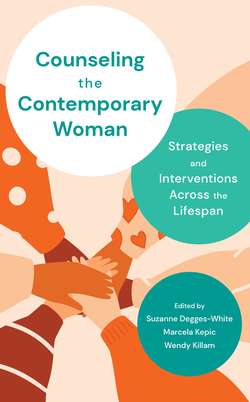Читать книгу Counseling the Contemporary Woman - Suzanne Degges-White - Страница 114
На сайте Литреса книга снята с продажи.
Depression
ОглавлениеWhile not every woman who experiences menopause is going to suffer from depression, it is true that depression is more common during the perimenopausal (Mulhall, Andel, & Ansley, 2017) and early postmenopausal period than at any other times in a woman’s life (Georgakis et al., 2016). A report from the Harvard Women’s Health Watch (2018) suggested that a woman’s risk for depressive symptoms is quadrupled during this period of life. Of note, however, is the finding that the longer a woman’s reproductive period lasted (the years from first period to menopause), the smaller the likelihood she will experience menopause-related depression (Georgakis et al., 2016).
Unfortunately, the emotional losses that midlife may present can also contribute to the incidence of depression during these years. Relationships and the family constellation can undergo significant transformations during midlife. Personal identities that have held great import may change as children exit the family home to create their own new family systems. Loss of parents or of others close to the client may be difficult to assimilate, as these deaths can often bring into focus a midlife woman’s own sense of mortality. When a woman’s primary role in life, whether it was mother, partner, or employee, changes dramatically, she may feel that the meaning her life once held has lost its value. For detailed information on counseling women experiencing depression, please refer to chapter 16.
